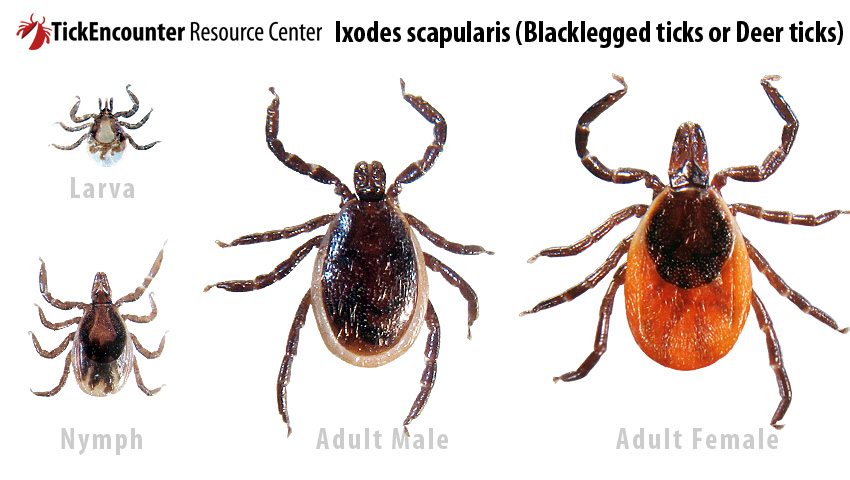According to the University of Rhode Island’s TickEncounter Resource Center, June is peak season for nymphal stage deer ticks (also known as black-legged ticks). With the scientific name of Ixodes scapularis, these poppy-seed-sized insects transmit Lyme disease and can be very hard to spot.
With this being the season to be out in the great outdoors, it’s important to know what to do if you find one of these critters has attached itself to you, your kids or the family Fido. Contrary to popular belief, taking a match to the insect or slathering it in petroleum jelly are not the way to go.
Check out the video above for a step-by-step guide to removing ticks safely, using pointy tweezers and a slow-and-steady method to pull the tick upward and out. If you’re outdoors frequently, other preventative measures include wearing tick-repellent clothing and covering exposed skin.
Check out the TickEncounter Resource Center’s website, which is packed with other useful advice including tick-identification resources, how not to remove ticks and information on tick testing to guard against Lyme disease.
